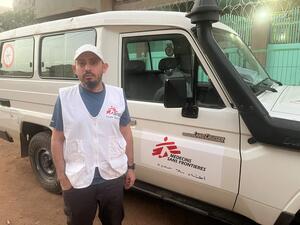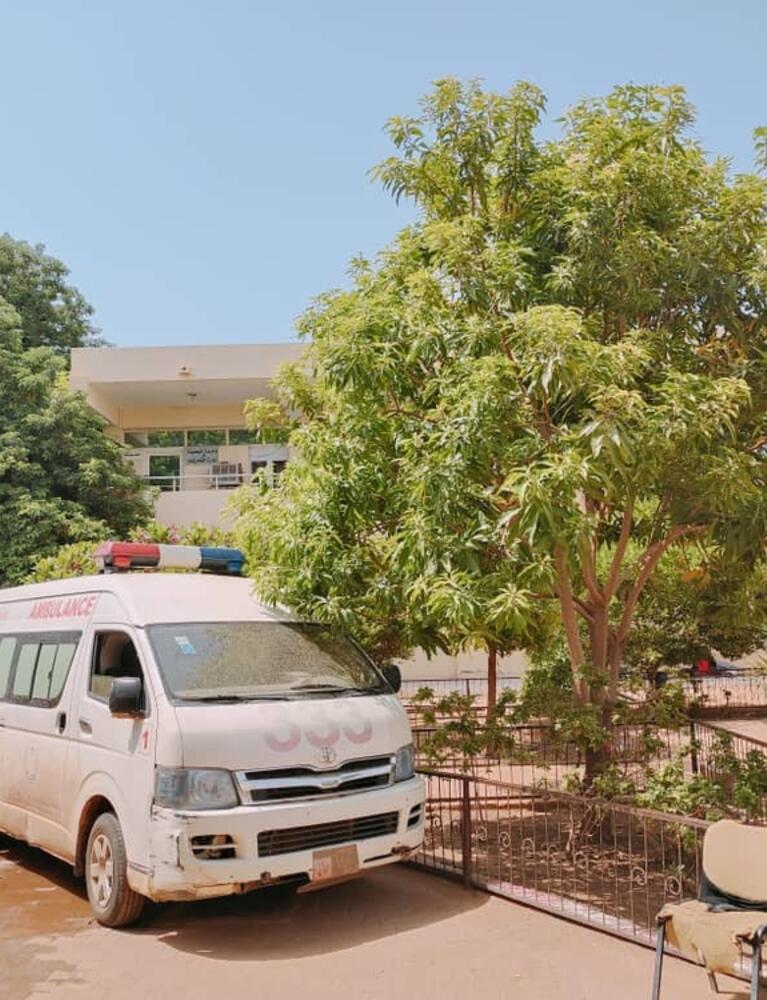
Since April this year, the number of suspected cholera cases in Khartoum state has substantially increased even with all the efforts from Ministry of Health and other actors to curb the outbreak. According to the Ministry of Health, around 2,000 suspected cholera cases were recorded in the three weeks leading up to May 20. In a sharp escalation, nearly 500 additional cases were reported in a single day on May 21—amounting to one-quarter of the total from the previous three weeks. Slaymen Ammar, MSF medical coordinator in Khartoum describes the situation on the ground.
How concerned are you about the current cholera outbreak in Khartoum?
This is not the first time than Sudan or Khartoum is affected by cholera, but the conflict has clearly compromised basic infrastructure, and this upsurge of cholera cases is definitely one of the consequences of the war. There are several reasons for the ongoing cholera outbreak but for sure the difficulty of access to safe drinkable water is one of them. Due to the drone attacks on the power plants in Omdurman, water treatment stations no longer have electricity and cannot provide clean water from the Nile. People in other parts of the city, such as southern Khartoum and Jabal AwIla locality, are deprived of access to drinkable water and electricity. That might explain why these areas are some of the heavily affected areas.
Secondly, access to essential healthcare was severely hindered in many parts of the capital, making it either unavailable or unaffordable for many. In certain areas like south Khartoum, a significant number of the health facilities were damaged in one way or another and many of the remaining health workers had no choice but to leave because of the intensity of fight. In the absence of essential care and with minimum precaution measures that were there before, the epidemic has become widespread among the vulnerable population.
Now cholera cases are coming from everywhere in the state and the structures supported by MSF are overwhelmed.
What are the main challenges?
Part of what we are doing with the health authorities is to reinforce the surveillance system around the cases to have a better understanding of where most of the patients come from, what the main problems are there, and how we could improve our support. In a context like this, with very few operational health facilities, we need to address quickly the needs of patients to prevent them from progressing to a severe form of the disease. Cholera could be fatal but is easy to treat if care is available and patients are treated early enough, which is not the case everywhere. Additionally, rehabilitating the water treatment system will take time, so it’s crucial to reinforce all activities related to improving hygiene.
What is MSF currently doing?
In Khartoum, we have just resumed our activities in support of the Bashair Teaching Hospital including its cholera treatment centre, where we have increased bed capacity from 20 to 50. MSF is working closely with the Ministry of Health to reinforce its efforts and respond to the outbreak. Thirteen cholera treatment units are currently operating in Khartoum State, and MSF is supporting seven of these to ensure they are fully functional and can scale up according to need. In Omdurman MSF is supporting two cholera treatment centres to handle the influx of cases where more than 570 patients have been treated from 17 to 21 May.
In addition, we are implementing a variety of preventive activities within the community. These include setting up rehydration points and improving water and sanitation facilities. One of our strategies for tackling cholera is to reach out to the population through mobile clinics. These allow us to reinforce community-based surveillance and function as an entry point for identifying, diagnosing and treating other health issues, such as dengue or malaria.
During their mobile clinics each day, medical teams provide primary healthcare and refer patients with acute diarrhea to dedicated treatment centres. The conflict has had a particularly negative impact on children, who are among the most vulnerable and affected of those being treated. Some of them are also suffering from malnutrition. We are also seeing numerous cases of mosquito-borne diseases, which can be fatal without access to medicine, due to the absence of preventive protection measures (few mosquito nets available and no intra-domiciliary spraying being conducted). We are constantly looking for ways to extend our support and improve access to care for the population of Khartoum.
MSF urges donors, UN, and INGOs to urgently scale up water, sanitation, and hygiene promotion efforts in Khartoum to curb the outbreak. With no city power, fuel is critical to run generators for water stations and hospitals, and MSF calls on relevant ministries of Sudan accelerate ongoing efforts to restore electricity and water in affected areas.



